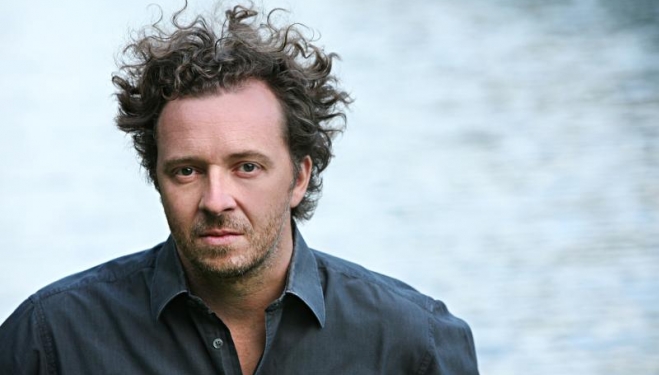Some of us have waited years for this. The opportunity to see Schumann’s largest, most ambitious work was not to be missed. For this most literary of composers, setting the Alpha and Omega of German poetry was a labour of love, which he undertook in reverse, but with progressively less reliable inspiration. From the grandiose bluster of the overture, composed last, you would be hard pressed to anticipate the sublime heights of the third part, composed by Schumann in a wake of elation shortly after completing The Paradise and the Peri.
Hardly more than a year ago the London Symphony Orchestra performed Peri with Sir Simon Rattle, and Daniel Harding already has Scenes from Goethe’s Faust under his belt, having conducted it in Berlin and Munich, where the Bavarian Radio concerts made a fine recording with many of the singers featured last night. Such experience all told to the good.
Gerhaher invested more in Faust the reflective visionary than the exultant striverThe biggest obstacle to the work’s success in this all-too-rare revival was the acoustic of the Barbican, which is at its most unreliable in large-scale choral works. Jammed into the back of a packed and extended stage, the LSO Chorus made a massed, undifferentiated impression, their collective impact muted despite Harding’s jabbing accents and their own excellent diction. Singing across the orchestra from stage right, the 30-strong boys' chorus of Eltham College piped away willingly but with minimal audibility except when reduced to a touching sextet.
Most of the soloists were squashed onto a small platform behind the cellos, from where they may as well have been singing in Chinese. Only Lucy Crowe’s soprano sailed over the orchestra in vocal ensembles, and some excellent contributions from Tara Erraught were largely lost in competition. Andrew Staples’s brief and lovely solo as Ariel to open Part 2 rang out, but the soloists only fully became themselves when permitted to join Christian Gerhaher at the front of the stage, from where Christine Karg was in lovely, supple, responsive form as Gretchen, Faust’s lover in Part 1. As the Pater Profundus, Matthew Rose was score-bound but had a resonant authority to match Goethe’s poetry at its most purple. Alistair Miles’s bass is missing much of its old power, but he did well not to overcompensate with a surfeit of vocal acting as the consonant-spitting Mephistopheles who leers and sneers at Gretchen before admitting ambivalent defeat upon Faust’s demise.
 So much, inevitably, rested on Gerhaher’s Faust (pictured right). He knows the role inside out, that much is clear. On the night he invested more in Faust the reflective visionary than the exultant striver. Fined down almost to a whisper, as it often was, his baritone can still reach across the stalls and confide in your ear, when Schumann’s much-maligned orchestration lets him. Such moments of world-stopping stillness were too often set side by side with passages when either vocal frailty or expressive risk-taking left but a thread of voice to be heard and followed.
So much, inevitably, rested on Gerhaher’s Faust (pictured right). He knows the role inside out, that much is clear. On the night he invested more in Faust the reflective visionary than the exultant striver. Fined down almost to a whisper, as it often was, his baritone can still reach across the stalls and confide in your ear, when Schumann’s much-maligned orchestration lets him. Such moments of world-stopping stillness were too often set side by side with passages when either vocal frailty or expressive risk-taking left but a thread of voice to be heard and followed.
There is more to Faust than a death-haunted philosopher, and Schumann takes particular delight in his surges of energy and ambition. His orchestra is an early-Romantic Rhine landscape sprung into sound, overflowing with naturalistic colours for rivers and forests, moonshine and sunrise, rocks and storms. Harding pared back vibrato to a minimum and the LSO mostly rose to the challenge of some difficult, unfamiliar writing. When Benjamin Britten revived the work for a surprised and enlightened English audience in the 1970s, he also retouched the scoring to make it brighter and punchier. Here, the orchestral sound was built upwards from eight double basses, with distinct, muscular force, often sinister, rarely hushed except when Gerhaher embarked on a sotto-voce soliloquy.















Add comment